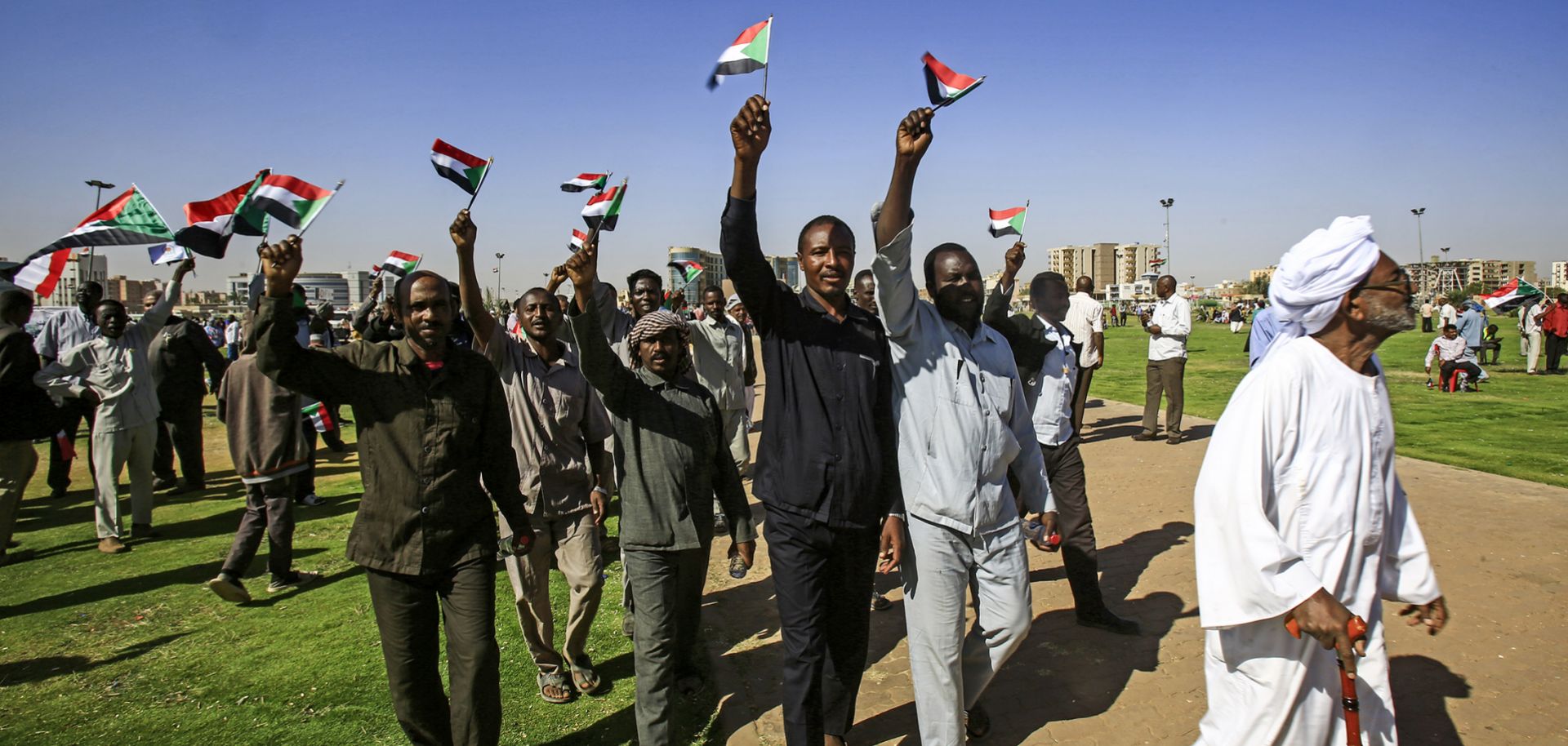ASSESSMENTS
How Sudan's Leadership Will Weather the Storm of Economic Protests
Jan 31, 2019 | 19:15 GMT

Supporters of President Omar al Bashir wave Sudanese flags during a rally for him at the Green Square in the capital Khartoum on Jan. 9.
(ASHRAF SHAZLY/AFP/Getty Images)
Highlights
- There are no easy solutions to Sudan's economic problems, and any financial assistance from allies will only paper over deeper structural issues.
- The government has few options to deal with ongoing social unrest and is unwilling to pursue a negotiated settlement, meaning that harsh crackdowns will continue.
- The protests, which began in December, are unlikely to end President Omar al Bashir's reign, but Khartoum's elites may pull support for the president's bid for re-election in 2020 and allow a successor to finally emerge.
Subscribe Now
SubscribeAlready have an account?
